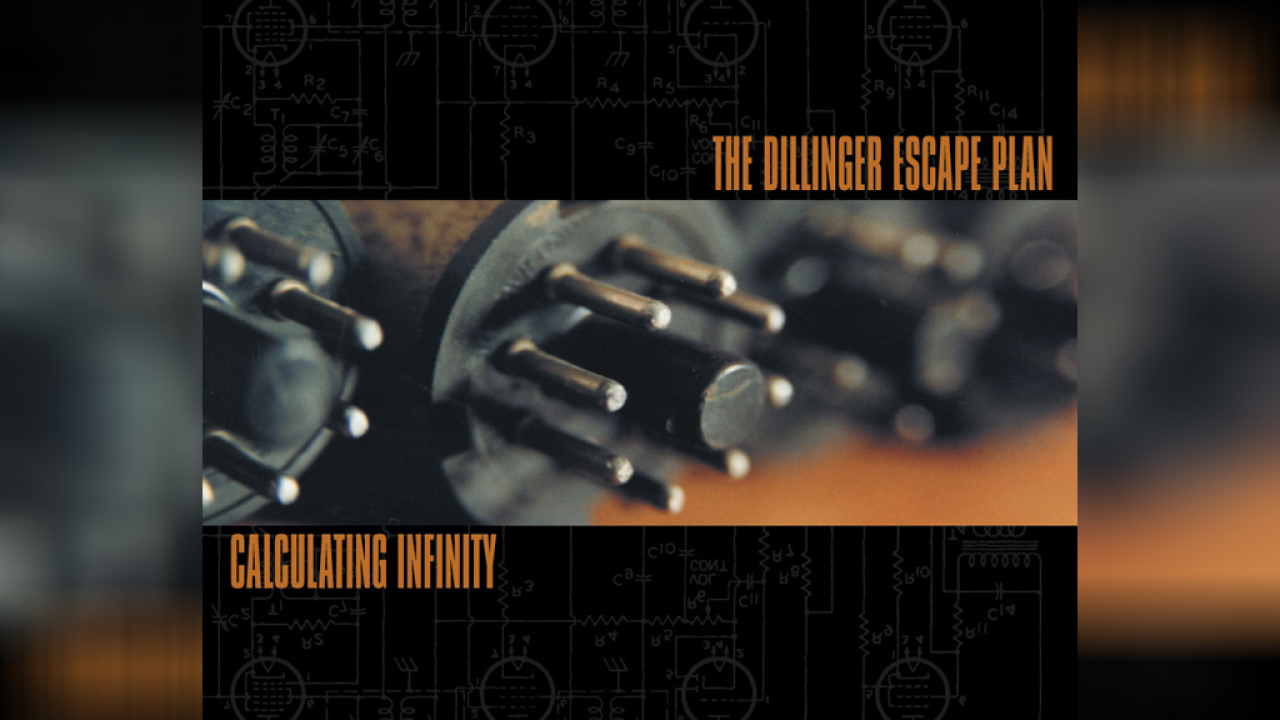When Napalm Death released the album Scum in 1987 many of the music press declared that, in terms of extremity, music had reached its peak. And it was a widely held view until, on September 28th 1999, The Dillinger Escape Plan rewrote the rules once more with Calculating Infinity.
It was a totally different landscape in the world of rock in late 1999, nu-metal and it’s Family Values tour led cast of baggy trouser-wearing freaks were considered the leader of the pack, with the pop and ska punk of bands like Blink 182, Less Than Jake and The Offspring just behind but all with a clear run into the mainstream in their sights. Frankly, it was not a great time to be a band that favoured originality, brutality or imagination over fart jokes and brooding, plodding repetition.
But, as is often the case, the underground was thriving in opposition to what the heavyweights of rock were dishing out. Opeth released Still Life, Emperor IX Equilibrium and Killswitch Engage formed. But, arguably, Dillinger made the biggest impact. Playing within the same scene that gave the world other such progressive, metallic hardcore luminaries as Converge, Botch, The Hope Conspiracy, Drowningman, Coalesce, Poison The Well and Nora the band increased the sonic extremities of the music even further, merging warp speed, jazz-tinged, scattershot riffs and broken electronic beats into a hardcore template. Even today Calculating Infinity sounds truly thrilling and utterly unlike anything else, from the opening two and a half minute breakneck, visceral thrill of Sugar Coated Sour to the title track’s brooding, seething but restricted instrumental, so imagine putting it on for the first time in 1999 whilst surrounded by Godsmack and New Found Glory? Anyone that heard it laughed, shat themselves or just dismissed it as aimless noise.
This, of course, is nonsense. Sure, there are moments when TDEP become so white hot on Calculating Infinity that it’s almost impossible for the senses to unravel the bludgeoning they are receiving. But the call and response refrain of vocalist Dimitri Minakakis on Destro’s Secret, the electronic pulse that underpins 4th Grade Dropout and THAT riff (that holy motherfucker of a riff) that opens 43% Burnt showed that The Dillinger Escape Plan were serious and inventive musicians. Not just one dimensional noisemongers. And, like any truly revolutionary art, it took a while for Joe Public to understand that what they were hearing was the work of demented genius. Not that it was easy mind…
Two years later, after touring solidly in support of the album despite numerous line-up changes, Dillinger were asked personally to open for System Of A Down on their UK Toxicity tour. It seemed like the perfect fit; the politically minded, schizophrenic, Armenian/American art punk oddballs and their underground, mathcore, serious, serial killer-esque protégées. But every night the band took to the stage to play a set comprising mostly of songs from Calculating Infinity amid some apathy and, mostly, outright hostility from scared, ignorant and close-minded people that had bought tickets after hearing Chop Suey on MTV2. Which spurred them on even more to dismantle each venue with their jaw dropping live show and make even more noise than before.
Despite the reaction the band were asked to open the main stage at Reading and Leeds in 2002, where Dimitri’s replacement on the mic Greg Puciato famously pooed in a bag and chucked it at Puddle Of Mudd fans, and began to cultivate a fanbase of the rabid obsessive variety (including Mike Patton who guested on Calculating Infinity’s follow-up the Irony Is A Dead Scene EP). And 15 years on, the influence of The Dillinger Escape Plan is present at every major rock festival in the shape of any forward-thinking, heavy band and even in the current metalcore or tech-metal production line (who have aped elements of their sound in the most piss-weak and desperate way). But the fact that these bands are here at all and able to appeal to a wider audience is in no small part due to the trail blazed by Calculating Infinity and its utter contempt for compromise and uniformity. Certainly The Dillinger Escape Plan may have made ‘better’ records since (They’ve certainly made more accessible records too) but for the sheer WTF nature of the time, the piece and its impact it is very hard to argue against Calculating Infinity as the bands defining moment. Much like Scum in 1987, it’s hard to imagine anyone will ever top it.

